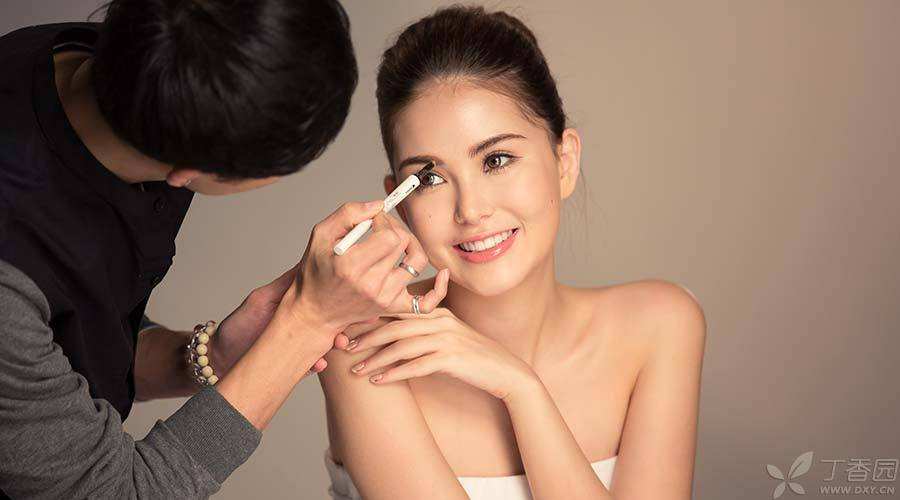
Kun Ling gave birth to a daughter, not only smoothly, but also the whole pregnancy was full of heavy makeup and hair dyeing, which is the most ferocious pregnant woman in history. Pregnant mothers cannot help asking: Is this really no problem?
Pregnancy and lactation are very special periods. Many pregnant and lactation mothers have been worried about the safety of personal products such as cosmetics, skin care products and hairdressing products.
Can pregnant mothers and nursing mothers dye their hair and use cosmetics? Are there any ingredients taboo? Next, we will try our best to answer these doubts from a scientific and objective perspective.
Is sunscreen working?
Answer: Sunscreen can be used safely during pregnancy and lactation.
Only a very small amount of sunscreen can be absorbed into human body through skin, and no toxic or side effects have been found in animal experiments.
In addition, many pregnant mothers find that the color spots on their bodies are aggravated or new chloasma appears during pregnancy, which is related to changes in hormone levels and sun exposure during pregnancy. The use of sunscreen is one of the important methods to prevent and treat color spots during pregnancy.
Is lipstick working?
Answer: Lipstick can be used safely during pregnancy and lactation.
In order to make the color of lipstick more lasting, most (about 60%) of the regular and qualified brands of lipstick contain lead.
The U.S. Food and Drug Administration (FDA) conducted a detailed investigation on lead in lipstick and announced the results at the end of 2011: lead in lipstick will not cause harm to human health if it is used routinely.
During pregnancy and lactation, mothers are often cautious and especially sensitive to heavy metals. In fact, as long as regular and qualified products are used routinely during pregnancy, mothers should not worry too much and affect their mood, because the possibility of using lead lipstick affecting the fetus is extremely low. If you are still not at ease, you can consider lead-free lipstick.

Can hair dyeing, perming and other hair products be used?
Answer: Hairdressing products are not completely unusable during pregnancy or lactation.
Early animal experiments found that high-dose exposure to certain chemicals in hair products during pregnancy, such as phenylenediamine, aminophenols, ethanolamines, etc., may increase the risk of teratogenesis.
However, there is no human-based clinical evidence to prove that occasional hair dyeing or perming during pregnancy has health risks.
Under normal circumstances, the amount of chemicals absorbed into the human body in hairdressing products is extremely low. It is generally believed that the possibility of these chemicals being absorbed through the scalp and reaching amounts that affect fetal development is very low.
However, if mothers need hairdressing during pregnancy or lactation, please pay attention to the following matters:
- Use regular and qualified products; Make sure the scalp is intact and undamaged before use, and clean it in time after use, especially the scalp. Pay attention to the frequency, amount and correct method of use, pay attention to the selection of air circulation places, and minimize the inhalation of harmful chemicals; Hairdressing products have potential sensitization risks. After nursing mothers use hairdressing products, they should pay more attention to the allergy protection of their babies.
Kun Ling, the sister-in-law of Heavenly King, said that she used plant hair dye, so fans should not worry about the safety of the fetus.
In fact, products promoted with [pure natural] as the highlight do not mean that all the ingredients in them are pure natural, and even if all the ingredients are pure natural, it does not mean that there is no potential health hazard at all. Therefore, mothers during pregnancy and lactation are also reminded not to be superstitious about [pure natural].

Can nail polish and spray be used?
A: If it is not necessary, please avoid it during pregnancy and lactation.
Nail polish and spray hair spray usually contain Phthalates.
Some studies have found that contact with phthalic acid during pregnancy (including all sources in life) may affect the reproductive system development of male fetuses.
In 2014, another clinical study found that the higher the concentration of phthalic acid metabolites in the urine of pregnant mothers, the more backward the child’s intellectual and psychological development will be in the future, and this difference still exists when the child is 7 years old.
At present, there is no evidence to prove that phthalic acid exposure during pregnancy is related to teratogenicity, and the impact on health needs further study.
However, if mothers must use such products, please consider using them in a well-ventilated place or using phthalic acid-free substitutes.
Can anti-wrinkle skin care products be used?
Answer: Most anti-wrinkle skin care products contain Retinoids. For no special reason, try to avoid skin care products containing Retinoids during pregnancy.
Retinoic acid can help promote cell metabolism and slow down skin collagen decomposition, thus achieving anti-aging and anti-wrinkle effects.
Only a very small amount of retinoic acid in external products is absorbed by skin. However, there are currently four clinical case reports suggesting that external use of retinoic acid during pregnancy may lead to teratogenesis. At the same time, it is also believed that it may lead to miscarriage and low birth weight.
Although clinical cases do not belong to high-quality clinical basis, considering that there is no other high-quality evidence to support the safety of topical retinoic acid during pregnancy, it is better to be cautious.
Can acne-removing and skin-cleaning skin care products be used?
Answer: Most acne-removing and skin-cleaning products contain salicylic acid and should be used carefully.
Salicylic acid can enter pores to deeply clean skin and has anti-inflammatory effect. Most skin care products (such as facial cleanser, toner, etc.) with acne removal and skin cleaning effects contain salicylic acid.
External application of salicylic acid can lead to allergy in some sensitive skin people. In addition, external application of high concentration salicylic acid (15% ~ 60%) cream, ointment, gel, etc. for infants may lead to increased risk of candidal inflammation or ulcer.
A small number of clinical studies have found that taking low doses of acetylsalicylic acid during pregnancy will not increase the risk of teratogenesis, premature delivery or birth of low birth weight infants. However, taking large doses of acetylsalicylic acid during pregnancy can lead to teratogenesis.
However, there is no clinical study to prove that external use of salicylic acid during pregnancy or lactation will have similar adverse consequences.
Therefore, occasionally a small amount of acne-removing skin care products containing low concentration salicylic acid (less than 2%) are used during pregnancy or lactation without excessive panic.
However, if high concentration is used in large areas, such as facial mask containing salicylic acid and whole body massage cream, it should be avoided as much as possible. Especially if the skin is damaged, the absorption ratio of salicylic acid will be higher.
If acne occurs due to changes in estrogen levels in early pregnancy, please use relevant acne removal products under the guidance of professionals, because many acne removal products contain salicylic acid and retinoic acid at the same time.

Summary
Step 1 Choose a regular product
During pregnancy and lactation, mothers still have the right to enjoy beauty. However, attention should be paid to choosing the right products and using them in the right way.
Avoid products with doubts about quality, source or safety. The simplest way is to find similar reliable substitutes or consult professionals.
2. Choose products with simple ingredients
Try to avoid complex products with chemical additives; Choose quietly elegant or odorless products to avoid too strong aroma.
At present, there is still a lack of clinical research on the safety of personal products. It is difficult to have a definite answer of “yes” or “no”. All that can be done is to avoid possible harmful ingredients as much as possible.
Step 3 Read the composition list
The above list is only some common interpretations of personal products. In fact, many chemical compositions are the same, and mothers can try to read the ingredients of the products to make a preliminary judgment.
Once again, don’t be easily moved by slogans such as [pure natural] [organic], which does not mean that all ingredients in the product fall within this range, and even pure natural organic ingredients do not necessarily mean that they are the safest.
